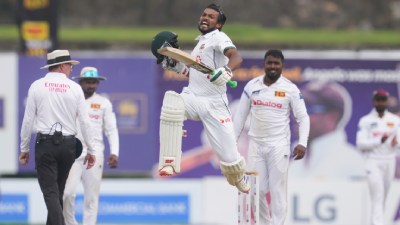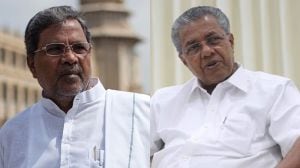Letters to the editor
In no mature democracy the world over can an apex court impeach an elected government for what is contempt, at worst.

Supreme jurisdiction
8226; In no mature democracy the world over can an apex court impeach an elected government for what is contempt, at worst. It is ironical that in India an SC judge made such hurried and anguished comments suggesting that the Tamil Nadu government should invite dismissal although oral observations are not permissible by law. In India, the law is very clear: courts can only validate and interpret the Constitution when the Centre wants to impose President8217;s Rule. In any case, the courts should keep away from politics. The latest developments demonstrate that the courts in the country are ineffective, inefficient and unclear about their role in upholding the Constitution.
After two years of the Sethusamudram project being cleared, the local AIADMK and the BJP decide to oppose it for political gains and move the courts. Anyone can move the courts for any reason in India, since it is a democracy. That is why it is even more incumbent on the Supreme Court to understand the issues and know what comes under its jurisdiction and what does not.
8212; Mani Guruswamy
New Jersey, USA
8226; If in the opinion of the presiding Supreme Court judge, non-plying of buses and closure of shops in Tamil Nadu amounted to 8220;complete breakdown of constitutional machinery8221;, then things were much worse in 2002 during the Gujarat riots when there was mindless violence resulting in thousands of deaths. Moreover, the state was hand in glove with the perpetrators and silently acquiesced in their acts. Yet the Supreme Court did not deem it necessary then to take suo motu action and call for the dismissal of the state government.
8212; Vijai Anandakrishna
Reform, not vendetta
8226; Apropos of the article, Policing UP8217;s police recruitment, Mayawati8217;s dismissal and suspension spree of UP8217;s men in khaki is not unprecedented. But is it a healthy trend? Certainly not. Leaving aside the merits of this particular decision 8212; which is ultimately for the judiciary to decide 8212; it would be wise if a new rational, transparent and fool-proof policy is devised to recruit policemen in a manner that stands the test of time along the lines of the one used for the recruitment of defence and paramilitary personnel. There is an urgent need to do this.
Remember the celebrated verdict of the Supreme Court on police reforms delivered last year, which strongly advocated the need for police reforms. Much has been written, recommended and deliberated upon at all fora, now it is for the executive to act. After assuming power, Mayawati had endeavoured to reform the posting and transfer policy in the state8217;s bureaucracy. She should now reform the police machinery, starting with proper recruitment procedures.
8212; Hemant Kumar Ambala
Women of Arabia
8226; The write-up by Hassan M. Fattah, about a skit on the theme of women driving in Saudi Arabia, highlights the fact that that country which sanctifies Wahabism and constantly evokes the glory of Islamic values remains one of the last citadels of conservatism in the world. Any literary/creative activity, whether it is a skit, novel or political tract, has the potential to shake the edifice of a social structure manned and barricaded by orthodox clerics. The fact of women driving in Saudi Arabia today constitutes change at its most revolutionary. But 8220;time8217;s winged chariot8221; moves on remorselessly and a day will soon dawn when gender equality and emancipation will be a reality, and women driving cars and planes will become passe.
8212; W.K. Naidu Bhojraj
- 01
- 02
- 03
- 04
- 05































